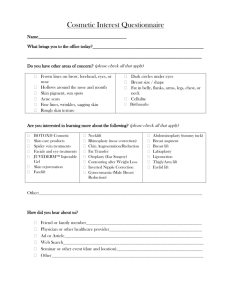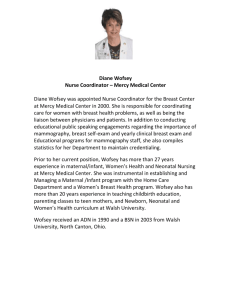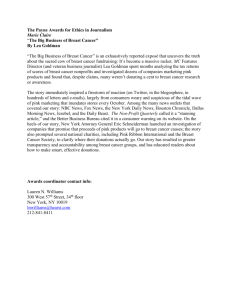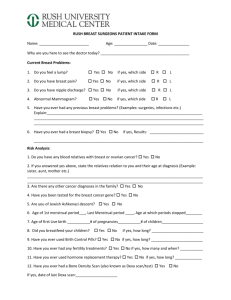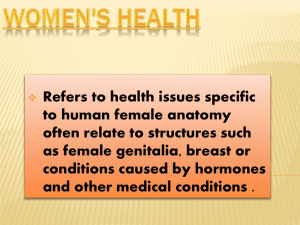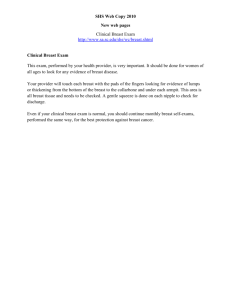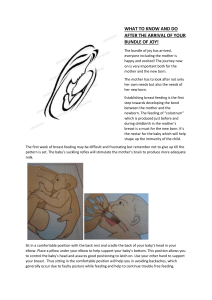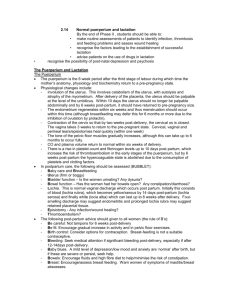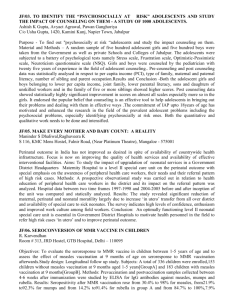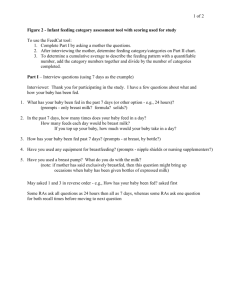UKZN PhD Candidate Awarded a Scholarship from The
advertisement
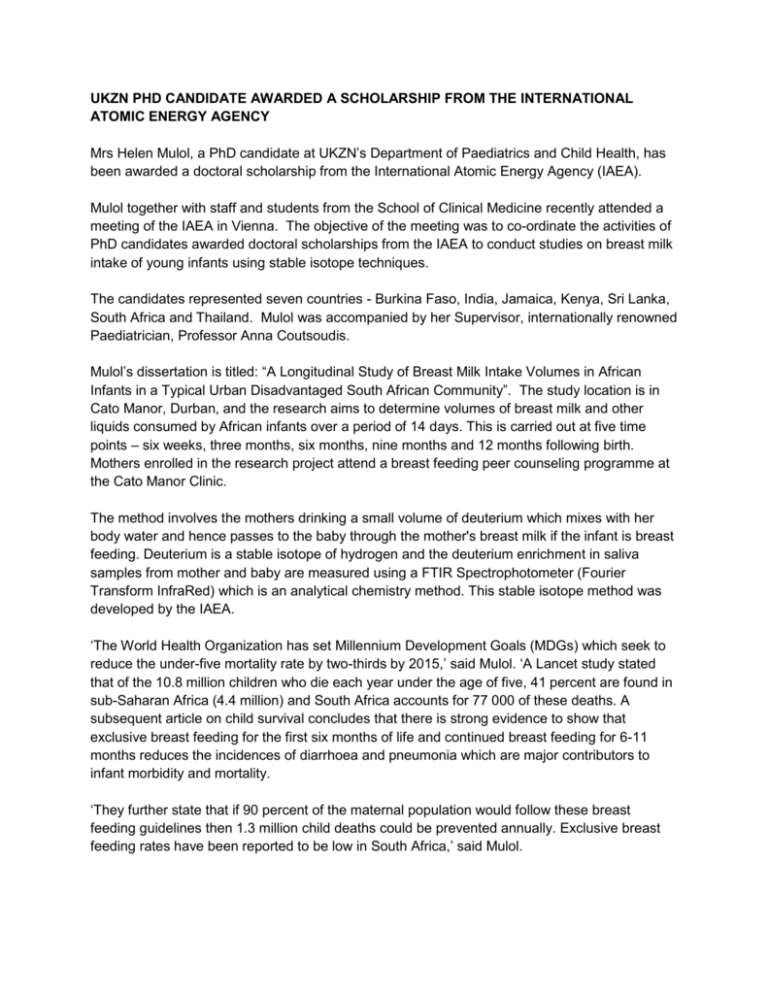
UKZN PHD CANDIDATE AWARDED A SCHOLARSHIP FROM THE INTERNATIONAL ATOMIC ENERGY AGENCY Mrs Helen Mulol, a PhD candidate at UKZN’s Department of Paediatrics and Child Health, has been awarded a doctoral scholarship from the International Atomic Energy Agency (IAEA). Mulol together with staff and students from the School of Clinical Medicine recently attended a meeting of the IAEA in Vienna. The objective of the meeting was to co-ordinate the activities of PhD candidates awarded doctoral scholarships from the IAEA to conduct studies on breast milk intake of young infants using stable isotope techniques. The candidates represented seven countries - Burkina Faso, India, Jamaica, Kenya, Sri Lanka, South Africa and Thailand. Mulol was accompanied by her Supervisor, internationally renowned Paediatrician, Professor Anna Coutsoudis. Mulol’s dissertation is titled: “A Longitudinal Study of Breast Milk Intake Volumes in African Infants in a Typical Urban Disadvantaged South African Community”. The study location is in Cato Manor, Durban, and the research aims to determine volumes of breast milk and other liquids consumed by African infants over a period of 14 days. This is carried out at five time points – six weeks, three months, six months, nine months and 12 months following birth. Mothers enrolled in the research project attend a breast feeding peer counseling programme at the Cato Manor Clinic. The method involves the mothers drinking a small volume of deuterium which mixes with her body water and hence passes to the baby through the mother's breast milk if the infant is breast feeding. Deuterium is a stable isotope of hydrogen and the deuterium enrichment in saliva samples from mother and baby are measured using a FTIR Spectrophotometer (Fourier Transform InfraRed) which is an analytical chemistry method. This stable isotope method was developed by the IAEA. ‘The World Health Organization has set Millennium Development Goals (MDGs) which seek to reduce the under-five mortality rate by two-thirds by 2015,’ said Mulol. ‘A Lancet study stated that of the 10.8 million children who die each year under the age of five, 41 percent are found in sub-Saharan Africa (4.4 million) and South Africa accounts for 77 000 of these deaths. A subsequent article on child survival concludes that there is strong evidence to show that exclusive breast feeding for the first six months of life and continued breast feeding for 6-11 months reduces the incidences of diarrhoea and pneumonia which are major contributors to infant morbidity and mortality. ‘They further state that if 90 percent of the maternal population would follow these breast feeding guidelines then 1.3 million child deaths could be prevented annually. Exclusive breast feeding rates have been reported to be low in South Africa,’ said Mulol. Notes to editors: Mulol has a BSc Honours Degree in Chemistry and an MSc in Instrumental Analytical Chemistry. She previously lectured in Analytical Chemistry at ML Sultan Technikon and the Durban Institute of Technology (now the Durban University of Technology) and has worked for UKZN as a Laboratory Manager at the Forestry and Forest Products Research Centre. For comment, please contact Mrs Helen Mulol: Mobile:083 706 2543 Email:mulol@telkomsa.net A picture is available on request - please contact Raylene Captain-Hasthibeer via captainr@ukzn.ac.za or call 031 260 8737. Issued by Nomonde Mbadi Executive Director: Corporate Relations University of KwaZulu-Natal

